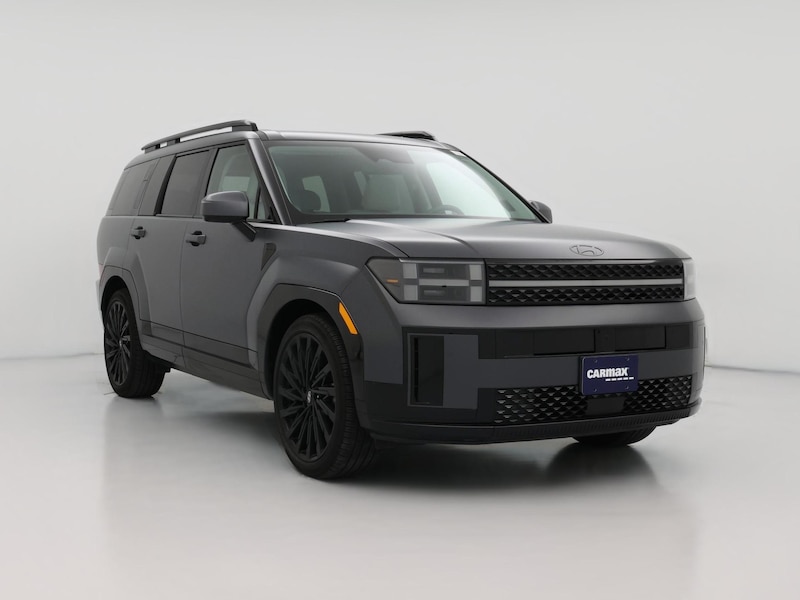Used Hyundai buying guide
- Accent
- Azera
- Elantra
- Elantra Hybrid
- Equus
- Genesis
- Ioniq 5
- Ioniq 5 N
- Ioniq 6
- Ioniq 9
- Ioniq Electric
- Ioniq Hybrid
- Ioniq Plug-In-Hybrid
- Kona
- Kona Electric
- Nexo
- Palisade
- Palisade Hybrid
- Santa Cruz
- Santa Fe
- Santa Fe Hybrid
- Santa Fe PHEV
- Santa Fe Sport
- Santa Fe XL
- Sonata
- Sonata Hybrid
- Sonata Plug-In Hybrid
- Tucson
- Tucson Fuel Cell
- Tucson Hybrid
- Tucson PHEV
- Veloster
- Veloster N
- Venue
- Veracruz
About Hyundai
The Hyundai Motor Company is a South Korean manufacturer offering a diverse range of sedans and SUVs. Initially focused on smaller, entry-level vehicles, Hyundai has expanded its lineup significantly in recent years. Looking for an SUV? Today, you'll find everything from the subcompact Venue to the midsize three-row Palisade. Many recent models come in hybrid, plug-in hybrid, and fully electric versions. Hyundai also offers thrilling "N" performance variants of the IONIQ 5, Elantra, and Veloster — as well as the Santa Cruz compact truck. No matter what you're searching for, something in the Hyundai lineup could meet your needs.
What CarMax customers like
Fuel Economy
Ride and Handling
Interior Space
What CarMax customers don’t like
Cabin Noise
Technology and Entertainment
Power
Hyundai FAQs
Hyundai has a reliability rating of 4.0 out of 5.0 at RepairPal, placing it firmly in the "Excellent" category. According to RepairPal, Hyundai ranks fourth among 32 car brands, which is quite impressive. However, they estimate Hyundai's overall average annual repair cost at $468, a bit higher than its rivals.
When shopping for a car, it's important to consider both mileage and maintenance. While some people may be hesitant to buy a used car with high mileage, others might not be as concerned. This is because maintenance is also crucial. A vehicle that has consistently met its service milestones could be a good option, even if it has more miles on the clock than other options.
On our lots, you have up to 20 models to choose from, including a variety of coupes and sedans ranging from basic to luxurious. If you’re in the market for an SUV, you’ll find plenty of options, from subcompacts to spacious three-row vehicles and everything in between. You'll even find a compact truck!
You'll find a diverse selection of sedans, including the subcompact Accent (1995-2002) and the compact Elantra. There are midsize options, too, like the Sonata and battery-electric IONIQ 6. If you're after luxury, consider the luxurious Genesis and Equus sedans. If you’re seeking something small and fun, the Veloster or the Genesis coupe could suit you. The SUV lineup ranges from the compact Venue to the spacious midsize Santa Fe and Palisade.
This depends on your needs. Are you looking for something easy to park or do you want a vehicle that offers ample interior and cargo space? The Hyundai Tucson strikes a great balance, featuring plenty of style and substance. Its compact design makes parking easier while providing impressive space for passengers and luggage. If you need a bit more room, consider the midsize Hyundai Santa Fe. It received a funky redesign for 2024, ensuring it stands out in a crowd.
Most reliable Hyundai models
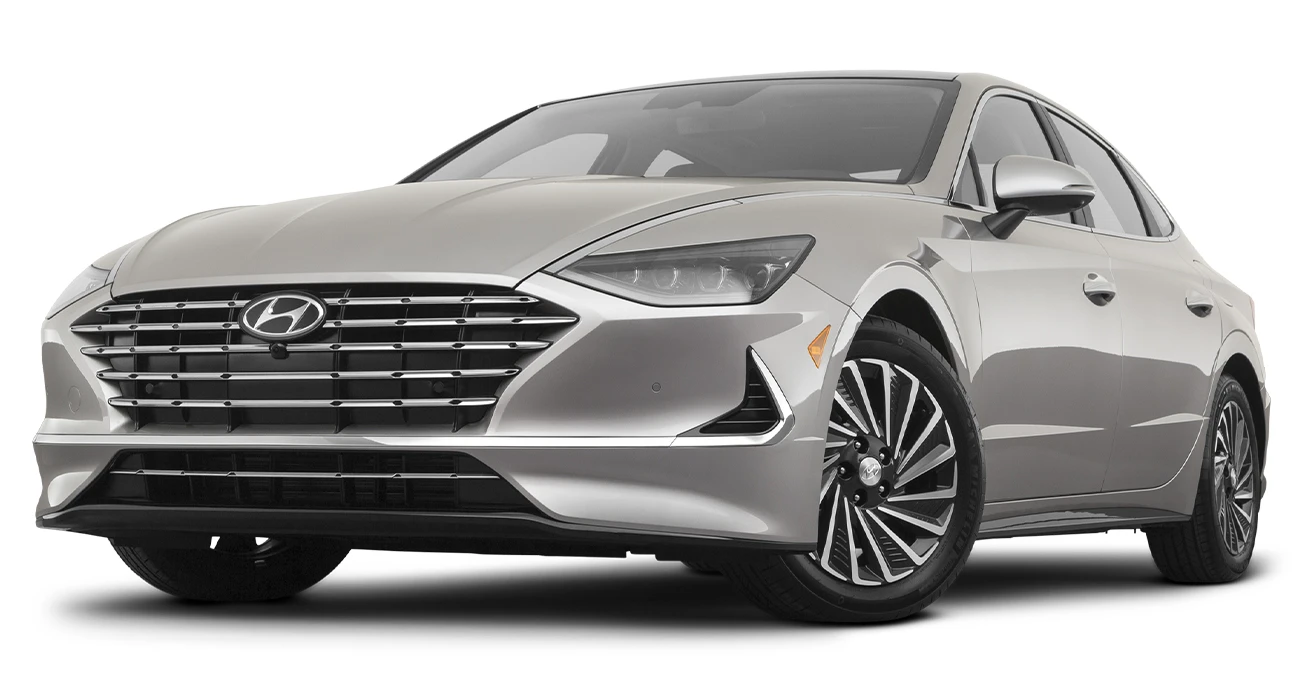

1. Hyundai Accent
CarMax owner rating
Pros
Comfortable ride and impressively quiet cabin
Spacious interior with quality materials and excellent fit and finish
Long warranty coverage
Impressive real-world fuel economy
Cons
Front seats don’t offer much adjustment
Enhanced driver aids only available on top trim level
New, less-powerful engine doesn’t bode well for performance
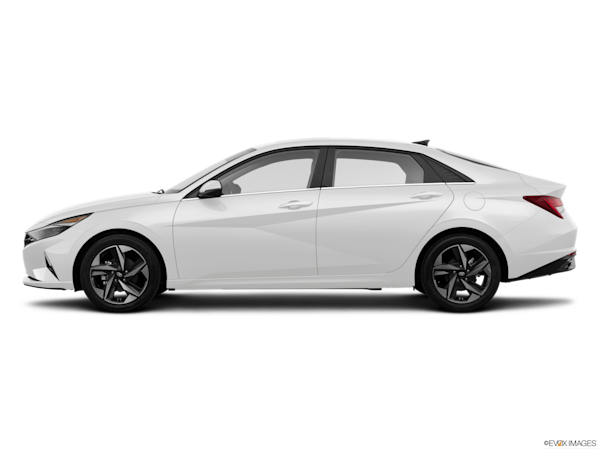
2. Hyundai Elantra
CarMax owner rating
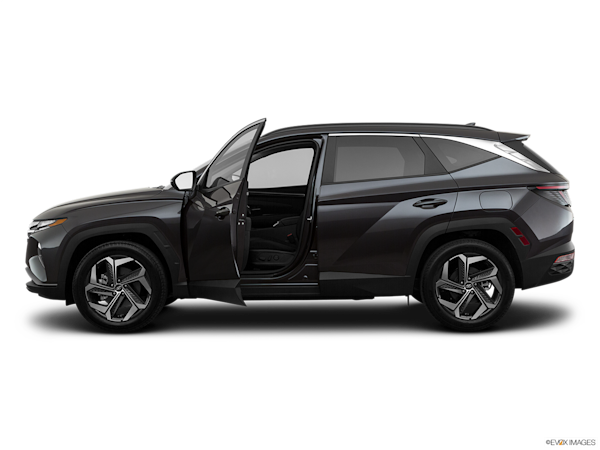
3. Hyundai Tucson
CarMax owner rating
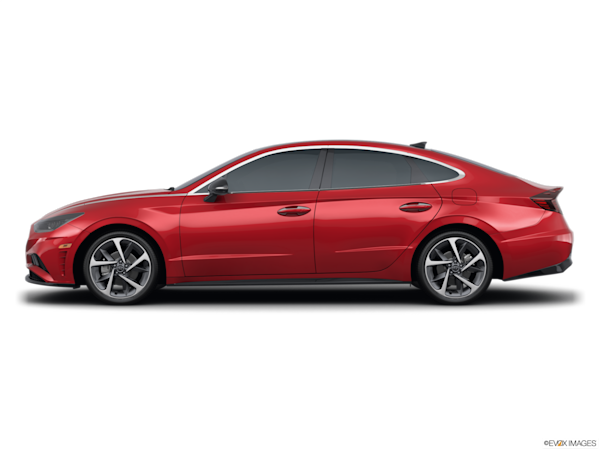
4. Hyundai Sonata
CarMax owner rating

5. Hyundai Santa Fe
CarMax owner rating
Ready to find your used Hyundai?
RepairPal reliability ratings
RepairPal Reliability Ratings are based on the actual cost, frequency, and severity of unscheduled repairs and maintenance on make/model data for select 2008-2022 vehicles. The reliability of a specific vehicle may vary depending on its maintenance and driving history, model year, trim, and features. RepairPal Reliability Ratings are provided by RepairPal and CarMax is not responsible for their accuracy. These ratings are based on RepairPal Reliability data as of August 2023. Learn more about RepairPal reliability ratings.
Unless otherwise noted, information related to these featured vehicles comes from third-party sources, including manufacturer information. We make every effort to provide accurate information, but please verify before purchasing. Product and company names may be trademarks or registered trademarks of third-party entities. Use of them does not imply any affiliation with or endorsement by these entities. We hope you found this information helpful. This content is intended to inform and is not meant to indicate that a particular vehicle is currently available or recommended for you.
RepairPal Reliability Ratings are provided by RepairPal and CarMax is not responsible for their accuracy. These ratings are based on RepairPal Reliability data as of 3/18/2025. Learn more at repairpal.com/reliability.
***
Various factors may impact towing capacity, including weight of passengers, cargo, and options/accessories.
Fuel economy figures are based on EPA estimates for when vehicle sold as new. Fuel economy may vary for reasons like driving conditions and vehicle history. Unless specified, figures are for vehicles equipped with an automatic transmission. See fueleconomy.gov.
Range figures are based on EPA estimates for when vehicle sold as new and assume a full battery charge. Range will vary based on things like battery age, vehicle condition and history, driving and charging habits, accessory use, and driving conditions. Battery capacity may decrease with time and use. See fueleconomy.gov for more info.
We hope you found this information helpful. This content is intended to inform and is not meant to indicate that a particular vehicle is currently available or recommended for you.
Statements of fuel economy or EV range are based on EPA and other third-party estimates for vehicles when new. Fuel economy and EV range will degrade with time and vary based on age, driving conditions, vehicle history, and other conditions. See fueleconomy.gov for more info.
Unless otherwise noted, information related to featured vehicles comes from third-party sources, including manufacturer information. Product and company names may be trademarks or registered trademarks of third-party entities. Use of them does not imply any affiliation with or endorsement by these entities. By clicking on any video links, you will be taken to a third-party site maintained by YouTube, Inc.
We make every effort to provide accurate information, but please verify before purchasing.















